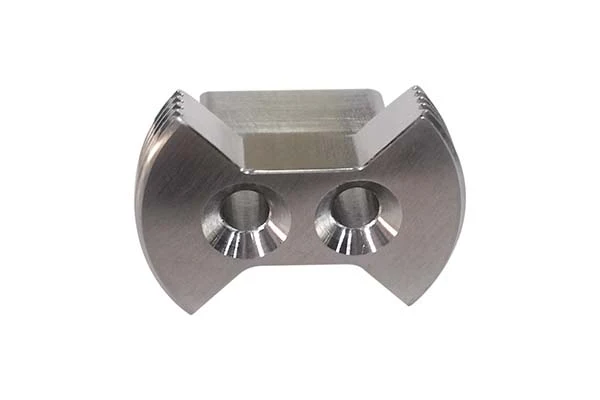Introduction
The significance of CNC machining in the UK cannot be overstated. In the UK's manufacturing industry, CNC machining has become an indispensable tool. It serves as a catalyst for the production of high - quality products across a wide spectrum of sectors. The ability to achieve tight tolerances and create complex geometries makes CNC machining a game - changer. For instance, in industries where precision is non - negotiable, such as aerospace, medical, and automotive, CNC - machined parts ensure that components meet the strictest safety and performance standards.
Moreover, the UK's manufacturing sector benefits from the versatility of CNC machining. It can work with a diverse range of materials, from metals like aluminum, steel, brass, and titanium to plastics such as ABS, nylon, polycarbonate, and PVC, as well as composites like carbon fiber and fiberglass, and woods including hardwoods and softwoods. This adaptability allows manufacturers in the UK to produce a vast array of products, from intricate aerospace components to everyday consumer goods. As we delve deeper into the world of CNC machining in the UK, we will explore the numerous benefits it offers in more detail.
High Precision and Accuracy
1. Tolerance Capabilities
One of the most remarkable features of CNC machining in the UK is its exceptional tolerance capabilities. In traditional machining processes, achieving tight tolerances is often a challenging and time - consuming task. However, CNC machining has revolutionized this aspect.
CNC machines in the UK can achieve tolerances as low as ±0.01mm in many cases, and in some high - precision applications, tolerances can be as tight as ±0.001mm. For example, in the production of medical implants, where the fit and function are critical for patient safety, these tight tolerances are essential. A study comparing traditional machining and CNC machining in the UK found that traditional machining typically had a tolerance range of ±0.1 - 0.5mm, depending on the complexity of the part and the skill of the operator. In contrast, CNC - machined parts consistently maintained much tighter tolerances across a wide variety of materials and part geometries.
This high - level tolerance control not only ensures that parts fit together precisely but also contributes to the overall performance and reliability of the final product. In industries such as aerospace, where components must withstand extreme conditions, even the slightest deviation from the required dimensions can lead to catastrophic failures. CNC machining's ability to meet these stringent tolerance requirements makes it an invaluable technology in the UK's manufacturing landscape.
2. Complex Geometries
CNC machining in the UK also excels in creating complex geometries that are nearly impossible to achieve with traditional machining methods. In the aerospace industry, for instance, engine components often have intricate shapes with curved surfaces, internal channels, and thin - walled sections. These components need to be lightweight yet extremely strong to withstand the high - pressure and high - temperature environment within an aircraft engine.
Take the example of turbine blades. These blades have a complex aerodynamic shape that is designed to optimize the flow of air through the engine, thereby increasing efficiency. CNC machining allows manufacturers in the UK to produce these turbine blades with the utmost precision, replicating the exact design specifications. The use of multi - axis CNC machines, such as 5 - axis or even 7 - axis machines, enables the creation of these complex geometries by allowing the workpiece to be manipulated from multiple angles during the machining process.
In the automotive industry, CNC machining is used to produce custom body panels with complex curves and contours. These panels not only enhance the aesthetic appeal of the vehicle but also improve its aerodynamic performance. For example, luxury car manufacturers in the UK often use CNC - machined body panels to create unique and sleek designs that set their vehicles apart from the competition. The ability to produce complex geometries also extends to the production of engine components like cylinder heads, which have complex internal passages for coolant and oil flow. By accurately machining these passages, the performance and durability of the engine are significantly enhanced.
more What are the Benefits of CNC Machining in the UK?

No comments:
Post a Comment